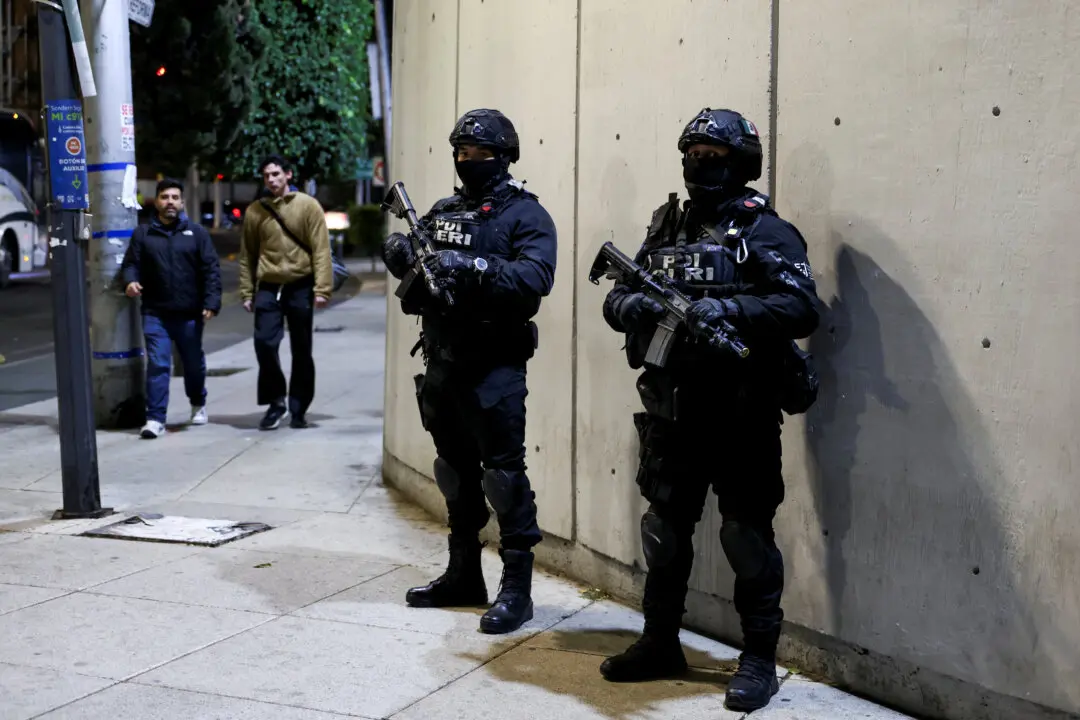Commentary
The right of Israel to exist and, therefore, to defend itself boils down to the right of any individual or community to self-defense. But understanding who is the attacker and who is the defender in the current conflict requires a full understanding of its history. The portrayal of that history is all too often biased by partisan cherry-picking on both sides, neither of which is blameless.
For centuries, dating to the Babylonian captivity of the sixth century B.C. and the Jewish Revolt against Roman rule in 60 A.D., Jewish people were persecuted in their own homeland of Israel. They were killed, captured, fled, or forced to convert. When they found a new existence in Europe and the Middle East, they were treated as second-class citizens and subjected to pogroms.
By the 19th century, many Jews reasonably dreamed of founding a new Jewish state in which they could develop their culture and reliably defend themselves. They called themselves “Zionists” and considered Argentina, Uganda, and a return to what was then under the rule of the Ottoman Empire: historical Israel, including the citadel on a hill in Jerusalem called “Zion.”
The Ottomans allied with the aggressor Germany in World War I and lost, resulting in the League of Nations granting the British control of the “Mandate for Palestine” in 1922.
Five years prior, in 1917, the British foreign secretary, Lord Arthur James Balfour, issued a declaration that stated, “His Majesty’s Government view with favour the establishment in Palestine of a national home for the Jewish people, and will use their best endeavors to facilitate the achievement of this object, it being clearly understood that nothing shall be done which may prejudice the civil and religious rights of existing non-Jewish communities in Palestine or the rights and political status enjoyed by Jews in any other country.”
This was a reasonable approach to alleviating the persecution of Jews, who started moving to Palestine and buying land from Arabs—some of whom were absentee landowners and whose Arab tenants were evicted. That created ethnic tension, and on May 1, 1921, in opposition to Zionism, Arabs initiated the first anti-Jewish riots in Palestine, killing 27 and wounding 104. Jews naturally defended themselves and their new agricultural communities.
The next major riots were in 1929 in Hebron, where the majority population of Arabs initiated violence that killed 133 Jews. The British responded with force, killing most of the 110 Arabs who died in the riots. But this tit-for-tat approach did not stop the violence.
In 1930, Sheikh Izz Al-Din Al-Qassam secured a fatwa for jihad against Jewish and British persons in Palestine. His small band started prematurely by killing a Jewish officer working for British police (two Arab officers were let go). The British killed al-Qassam in 1935.
However, the number of Qassamis grew and started the Arab Revolt of 1936 to 1939, including general strikes, to seek a ban on Jewish immigration, land purchases, and national independence. The revolt resulted in the deaths of another 415 Jews. Approximately 5,000 Arabs died, most at the hands of the British.
As anti-semitism turned to genocide in Europe from the 1930s to 1940s, Jews fled to Israel in larger quantities and developed their own weapons industries and militias. The British, under attack by both sides and exhausted from World War II, gave up and left.
The United Nations sought to stop the violence with the Partition of 1947, which gave more land to the Jews than their proportion of the population warranted. Violence began immediately, with a Nov. 30 Arab attack on a bus carrying Jews. The Jews accepted the partition and declared independence in 1948. The Palestinians, plus Egypt, Jordan, Syria, and Lebanon, rejected the partition and fought Israel in its War of Independence.
Under the extreme pressures of genocide, flight from Europe, and siege by the majority of Arabs, Israeli forces defended themselves and attacked some Palestinian villages. Approximately 700,000 Palestinians fled to neighboring Arab countries, the West Bank, and Gaza.
Abuses on both sides continued the spiral of violence that is still with us today. After periods of peace, Arabs—including neighboring states that attacked Israel in 1967, 1973, and 2006—were typically the instigators of violence. Israelis defended themselves successfully and, in the process, solidified their state structures, took more Arab land, and thus set conditions for a continuation of the cycle of Arab-instigated violence, successful Israeli retribution, and the territorial expansion of Israel.





